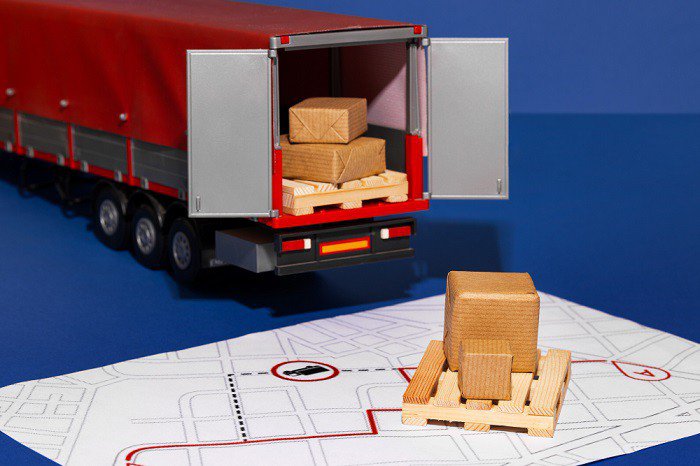Anything you need we are here to help



FTL (Full Truckload) and LTL (Less than Truckload) are two terms frequently used in logistics and transportation. For companies that depend on reliable and economical transportation solutions, it is essential to comprehend the differences between these two shipping techniques.
This blog post will delve into the key distinctions between FTL and LTL by comparing their definitions, benefits, and use cases.
FTL (Full Truckload):
"FTL," or "Full Truckload," describes a shipping technique in which a whole truck transports a single shipment. This indicates that the truck has been fully loaded with cargo from a single shipper and has been delivered to that shipper's sole consignee. FTL shipments typically take up the entire truck space, ranging from small box trucks to big semi-trailers.
Key Features of FTL Shipping:
1. Exclusive Use: Since FTL shipments use the truck's entire capacity, they are a good option for larger shipments or when a shipper wants to ensure that only their goods are transported on the truck.
2. Faster Transit Times: Compared to LTL shipments, FTL shipments typically have faster transit times because they do not require multiple stops for consolidation or deconsolidation.
3. Reduced Risk of Damage: Unlike LTL shipments, FTL shipments are less likely to sustain damage in transit because the cargo is not handled or loaded/unloaded repeatedly.
4. Greater Security: FTL shipments offer increased security because the cargo is kept sealed and out of reach of anyone while in transit.
Use Cases for FTL Shipping:
a. Shipments with a High Volume: FTL is the best option for companies that need to ship a lot of goods at once and need to send more than an LTL shipment can handle.
b. Fragile or Perishable Goods: The direct transport and minimal handling of FTL shipping can be advantageous for goods that need extra care during transportation, such as delicate or time-sensitive products.
c. High-Value Items: FTL offers improved security measures, making it a great option for shipping high-value items that need the highest protection level.
LTL (Less than Truckload):
The shipping method known as LTL, or Less Than Truckload, entails loading several shipments from various shippers onto a single truck. LTL carriers combine shipments based on their final destinations and effectively utilize the available space in the truck, enabling shippers to split the cost of transportation.
Key Features of LTL Shipping:
1. Savings: Since LTL shipments give shippers the option to split the cost of transportation with other companies, they are an economical choice for smaller shipments that do not require a full truck.
2. Flexibility: LTL shipments allow for smaller orders, allowing companies to send out smaller loads as needed without having to pay for a full truck's capacity.
3. Reduced Environmental Impact: LTL shipping encourages sustainability by increasing truck capacity and lowering the number of trucks that are partially loaded and on the road, thereby reducing fuel consumption and emissions.
4. Extensive Network: LTL carriers typically have a sizable network of terminals and distribution facilities, providing comprehensive coverage and more frequent service options.
Use Cases for LTL Shipping:
a. Small to Medium-sized Shipments: To cut down on transportation costs, companies with shipments that do not fill up the whole truck can choose LTL shipping.
b. Improved Efficiency: LTL is appropriate for shippers with several small shipments that can be combined into a single truck, making the most efficient use of space and lowering the number of individual shipments.
c. Regular, Scheduled Deliveries: Because LTL carriers frequently offer scheduled pick-up and delivery services, they are a dependable choice for companies needing regular shipping services.
| Feature | FTL | LTL |
| Shipments | Single Shipper | Multiple Shippers |
| Truck Usage | Full Truck | Partial Truck |
| Transit Time | Faster | Slower |
| Cost | Higher | Lower |
| Handling | Minimal/None | Multiple Stops |
| Security | Higher | Lower |
| Flexibility | Limited | High |
Conclusion:
For companies looking for effective, economical transportation solutions, it is essential to comprehend the distinction between FTL and LTL shipping. Large shipments and delicate or valuable goods are appropriate for FTL because it provides exclusive use of a truck, quicker transit times, reduced risk of damage, and enhanced security. However, LTL shipping is more affordable, flexible, has a smaller environmental impact, and has a large network, making it the best option for small to medium-sized shipments and companies that need scheduled, recurring deliveries.
Businesses can select the best shipping method for their particular needs by carefully considering each one's special features and use cases. This will ensure that their products are transported efficiently and on time.

